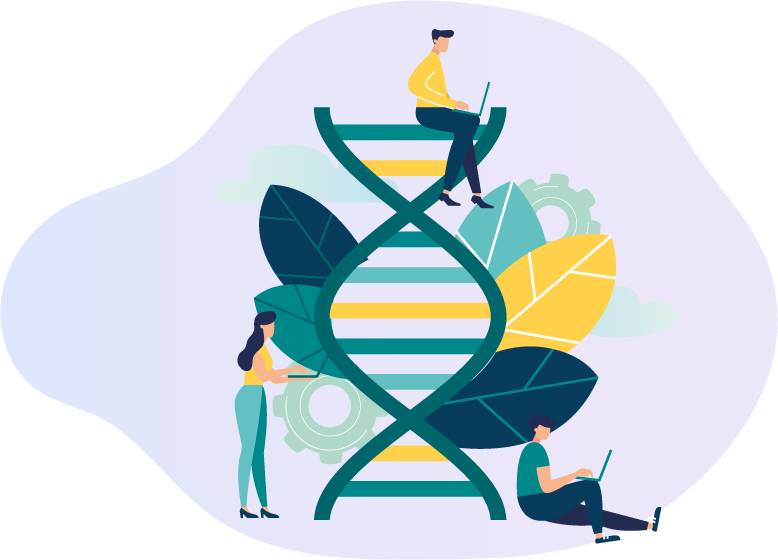Who's a Biostatistician?
Do you enjoy solving difficult mathematical problems? Or are you curious about treatments for various real-world issues? If so, you should think about becoming a biostatistician.
As a biostatistician, you will combine the best of maths and biology to solve a problem in medicine, public health, agriculture, and other health-related fields. You will be a highly trained expert who studies factors that affect people’s, plants’, and animals’ health and well-being in order to draw conclusions about various diseases and health risks. You will also use your skills to decode and interpret meaningful information from data to perform a particular task.
Curious to know how they do this? Browse through the biostatisticians’s section to know more!
What will you do?
Discover your Ideal future
Get expert guidance and mentorship towards your perfect fit.
Where will you work?
How do you get there?
What skills would you need?
How do you make it to the top ranks?
Intern
You can work under the supervision of a reputed biostatistician in an organisation to strengthen your abilities for a successful career in the field.
Junior Biostatistician
You will start your career as a junior or assistant biostatistician after obtaining the necessary qualifications in the field of biostatistics. Your major role as a Junior Biostatistician will be to conduct research and report to your seniors.
Research Scientist
After attaining the necessary knowledge as a junior in the field, you will secure the position of a research biostatistician. As a research biostatistician, you’ll be responsible for doing research, analysing the study data, reporting to the senior biostatistician and supervising the junior scientists.
Senior Biostatistician
After adequate years of experience, you could get promoted to the position of a senior biostatistician. As a senior biostatistician, you’ll have more duties, such as managing multiple ongoing research studies and projects, monitoring your team’s performance and supervising your team members.
Pursuing your career locally VS abroad
The colleges in India that offer education in Biostatistics are located in almost every state. You can pursue a M.Sc in Biostatistics from top colleges/universities like Indian Statistical Institute (New Delhi), All India Institute of Medical Sciences (New Delhi), Loyola College (Chennai), Manipal University (Karnataka), IIT (Kanpur), Symbiosis Statistical Institute (Pune), among other institutes that offer undergraduate or postgraduate degrees in Biostatistics. Fee ranges from INR 20,000 to INR 3 Lakhs.
You can pursue a degree in Biostatistics from top universities like Stanford University (United States), Yale University (United States), Harvard University (United States), University of Oxford (United Kingdom), University of Michigan (United States), University of Toronto (Canada), Duke University (United States), among others, who offer undergraduate and postgraduate courses in Biostatistics. Fee ranges from USD 10,000 to USD 45,000.
How much would you get paid?
As a Biostatistician, your salary broadly depends on the area of your employment, the organisation you’re working with and your experience in the field.The annual payscale for this job ranges from INR 3,00,000 for an entry level Biostatistician to INR 15,00,000 and above for an experienced Biostatistician.
What are your career options?
#CAREERREADY QUIZ
Think you know everything there is to know about this career?
Take the quiz to test your knowledge and find out how #CareerReady you are!
You got 1out of10right!
Discover your Ideal future
Get expert guidance and mentorship towards your perfect fit.








